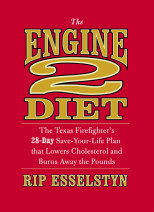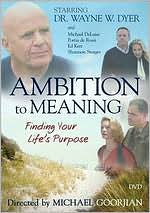I feel so grateful to have access to the wisdom of the people in my world, those I know well, those I meet in passing, and those I simply read or hear about. There’s truth, of course, in that each of us has all we need inside us, but when something new (or something familiar, just packaged and worded in a new way) comes from an interesting and well-informed “other” — well, that can be just the ticket.
 I’d like the share with you today, then, what I’ve recently learned from three fascinating folk. Two were guests on my radio show today (“A Charmed Life” on HealthyLife.net Radio — the show is archived if you’d like to listen). The other is a member of the Saturday morning writers’ group I alluded to in Monday’s blog, “The Fine Art of Noticing.”
I’d like the share with you today, then, what I’ve recently learned from three fascinating folk. Two were guests on my radio show today (“A Charmed Life” on HealthyLife.net Radio — the show is archived if you’d like to listen). The other is a member of the Saturday morning writers’ group I alluded to in Monday’s blog, “The Fine Art of Noticing.”
Rip Esselstyn, author of The Engine 2 Diet: A Texas Firefighter’s 28-Day Save-Your-Life Plan that Lowers Cholesterol and Burns Away the Pounds was on the show talking about how his whole Austin, Texas, firehouse started eating the plant-based, low-fat diet shown by 20 years of research work at the Cleveland Clinic to prevent and reverse heart disease. It started when the guys decided to have a contest to see who had the lowest cholesterol. It was all in good fun until they realized that JR, a 33-year-old firefighter, had a cholesterol reading of 340+, putting him on the path that had killed every male member of his family by age 52, with the exception of his father who’d had a triple-bypass operation.
Now, the Engine 2 guys knew about the work at the Cleveland Clinic since it was done by Rip’s dad, Caldwell Esselstyn, Jr. (and while we’re doing family history: his grandfather, Caldwell Esselstyn, Sr., was Lou Gehrig’s doctor; is that cool or what?). In an wholehearted attempt to “save JR,” the entire team switched from traditional Texas fare to a plant-based diet that lowered everybody’s cholesterol (JR’s included), slimmed everybody down, and got everybody excited.
And they did it without “weird” health food, instead making dishes like “Three Bean Chili,” “Potato Wedges,” fajitas, burritos, and enchiladas, and even pizza — but without the cheese, which is higher (by percentage of calories) in saturated fat than butter, ice cream, or steak! Recipes for the dishes that keep the firefighters comingback for more are in the book, along with two 28-day programs to get the same health-and-weigh results they did. One plan goes all the way to a fully plant-based diet. The other is transitional.
Rip’s wise words on the show today (paraphrased since I was busy listening and not writing down what was said): “I’m not trying to get everybody to be ‘plant-perfect’ [a 100% plant-based diet with a minimum of added oils] but just to increase their percentage of whole, plant foods from 10 percent of calories where it is now, to 50 or 60 percent or more.” That sounds doable. And lifesaving.
My other guest today was Janet Conner, author of Writing Down Your Soul: How to Activate and Listen to the Extraordinary Voice Within. Janet’s technique, which she discovered when she needed it most, during a harrowing time in her personal life, is to call on the Inner Voice in writing, as she did that first time when she just sat down and, in desperation, wrote “Dear God…” The idea is that when you’re in the right mental state, relaxed with the senses engaged and intention focused, you can call on the Divine and expect an answer. The key is to write fast so your own thoughts don’t get in the way. What’s she learned from doing this: “I am safe and protected and loved. We all are.”
Additional wise words from Janet Conner: “The quantum physicists tell that that the universe runs on intention — first intention, and then asking questions. You’re supposed to ask.”
And it seems that my colleague in writers’ group, Jim Sullivan, author of Boyfriend 101: A Gay Guy’s Guide to Dating, Romance, and Finding True Love, discovered something similar when he decided that it was time to receive “an email from God.” This is what it said (again, paraphrased; I should probably walk around with one of machines like they use in courtrooms to capture every word): “Dear Jim, This is God. I wanted to let you know that I’ll be taking care of your life today. I don’t need your help. Love, God.”
I liked that a lot when he told me. And it doesn’t mean that we’re supposed to let God do it all, in the sense of absolving us of any responsibility for our own lives. It means instead, to me anyway, that we have to get out of the way. We can so easily interfere with our destiny because we’re so busy trying to make things happen. In truth, the best things don’t happen because we make them, but rather because we don’t interfere with them. God (Spirit, Higher Power, Source — you pick the word) nudges, and we respond. We do the footwork, God is in charge of outcomes. It’s a lovely joint venture.

